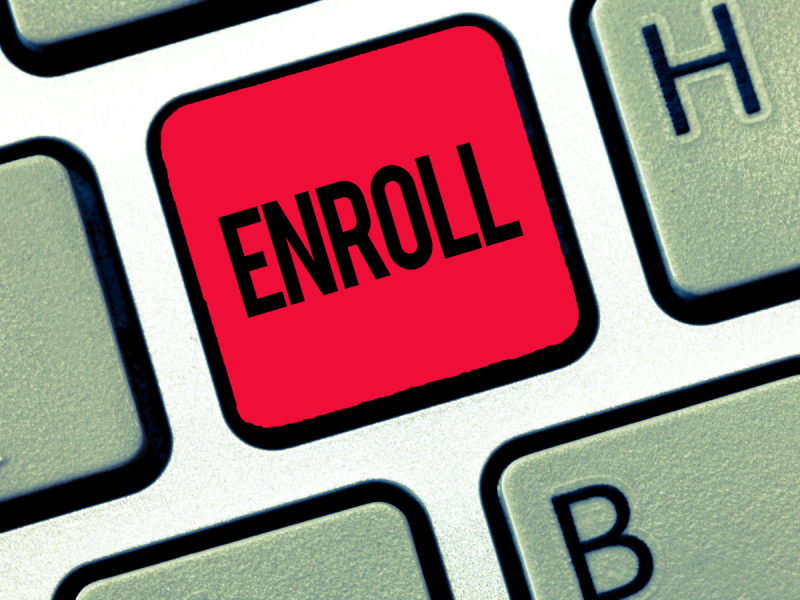Navigating the path to becoming a Physician Assistant (PA) can be daunting, especially if you’re grappling with a low GPA. However, a less-than-stellar academic record doesn’t have to be a deal breaker. With strategic planning, focus, and an unwavering commitment to your goals, you can overcome this hurdle. This article delves into actionable strategies for aspiring PA students to bolster their applications and enhance their prospects despite a low GPA.
Understanding the Challenge

First, it’s crucial to acknowledge the challenge a low GPA presents. PA programs are competitive, and admissions committees often use GPA as an initial screening tool. However, it’s important to remember that GPA is not the sole criterion. Admissions committees look at the whole picture, including clinical experience, personal statements, letters of recommendation, and your performance in interviews.
Strengthen Your Academic Record
Retake Prerequisite Courses
One of the most effective ways to compensate for a low GPA is by retaking prerequisite courses. Aim for A’s in these retakes to demonstrate your mastery of the material and your commitment to academic excellence. This not only boosts your GPA but also shows admissions committees that you have the dedication and capability to succeed in a rigorous PA program.
Enroll in Post-Baccalaureate (post-bacc) or Graduate Programs

This option can be quite expensive. There aren’t many financial aid options available to post-bacc and short of completing a 2nd bachelors degree, there’s not a whole lot of GPA boosting with just a few post-bacc courses. Some universities offer a Pre-Health Post-Baccalaureate program specifically designed for career changers that could be worth looking into. If it’s in the budget and the additional degree has a good ROI in combination with your PA degree, consider enrolling in a post-baccalaureate or graduate programs to further improve your academic record. These programs can help you enhance your GPA while also providing an opportunity to take advanced courses that are relevant to PA school. Success in these programs can be a strong indicator of your readiness for PA school.
If this isn’t an option for you, then you’ll want to pay close attention on the other areas discussed in this post to make your application really standout.
Gain Extensive Clinical Experience
Work as a Medical Assistant or EMT
Clinical experience is a critical component of your PA school application. Working as a medical assistant, EMT, or in another healthcare role can provide you with hands-on patient care experience. This not only strengthens your application but also gives you practical insights into the healthcare field, which can be beneficial during interviews.
Volunteer in Healthcare Settings

Volunteering in healthcare settings demonstrates your commitment to the field and provides additional clinical experience. Look for volunteer opportunities in hospitals, clinics, or community health organizations. This experience can also help you build a network of professionals who can provide strong letters of recommendation.
Craft a Compelling Personal Statement
Highlight Your Strengths and Experiences
Your personal statement is your chance to tell your story and explain why you are a strong candidate despite your low GPA. Focus on your strengths, such as your clinical experience, personal qualities, and resilience. Discuss any challenges you’ve faced and how you’ve overcome them. Be candid and sincere, and make sure to convey your passion for the PA profession.
Address Your GPA Head-On

Don’t shy away from discussing your GPA in your personal statement. Acknowledge it, but frame it in a way that highlights your growth and determination. Explain any extenuating circumstances that may have affected your academic performance and emphasize how you’ve worked to improve and prepare for PA school.
Secure Strong Letters of Recommendation
Choose Recommenders Who Know You Well
Letters of recommendation should come from individuals who know you well and can speak to your abilities, character, and readiness for PA school. Ideally, these should be healthcare professionals you’ve worked with, professors from your prerequisite courses, or supervisors from volunteer positions.
Provide Recommenders with Relevant Information
Provide your recommenders with your resume, personal statement, and any other relevant information that can help them write a strong letter. This ensures they have a comprehensive understanding of your experiences and aspirations, enabling them to write a more personalized and compelling recommendation.
Prepare Thoroughly for Interviews
Practice Common Interview Questions
Interviews are a critical part of the PA school admissions process. Practice answering common interview questions, such as why you want to become a PA, your understanding of the PA role, and how you’ve prepared for the program. Mock interviews with friends, family, or mentors can be incredibly beneficial.
Showcase Your Soft Skills

During interviews, it’s essential to showcase your soft skills, such as communication, empathy, and problem-solving abilities. These qualities are vital for a successful career as a PA. Be prepared to discuss examples from your clinical experience that demonstrate these skills.
Embrace Resilience and Determination
Stay Positive and Persistent
The journey to PA school can be challenging, especially with a low GPA. However, resilience and consistency are key. Stay positive, focus on your goals, and keep working towards them. Every step you take to improve your application brings you closer to your dream.
Learn from Rejections and Keep Improving
If you face rejection, use it as a learning experience. Seek feedback, identify areas for improvement, and work on them. Whether it’s gaining more clinical experience, retaking courses, or refining your personal statement, continuous improvement is crucial.
Conclusion
Getting into PA school with a low GPA is undoubtedly challenging, but it’s not impossible. By strategically strengthening your academic record, gaining extensive clinical experience, crafting a compelling personal statement, securing strong letters of recommendation, and preparing thoroughly for interviews, you can enhance your chances of success. Remember, resilience and determination are your allies. Stay focused on your goals, and don’t let a low GPA deter you from pursuing your dream of becoming a PA.
Embark on your journey with confidence, and know that with dedication and hard work, you can achieve your aspirations.

